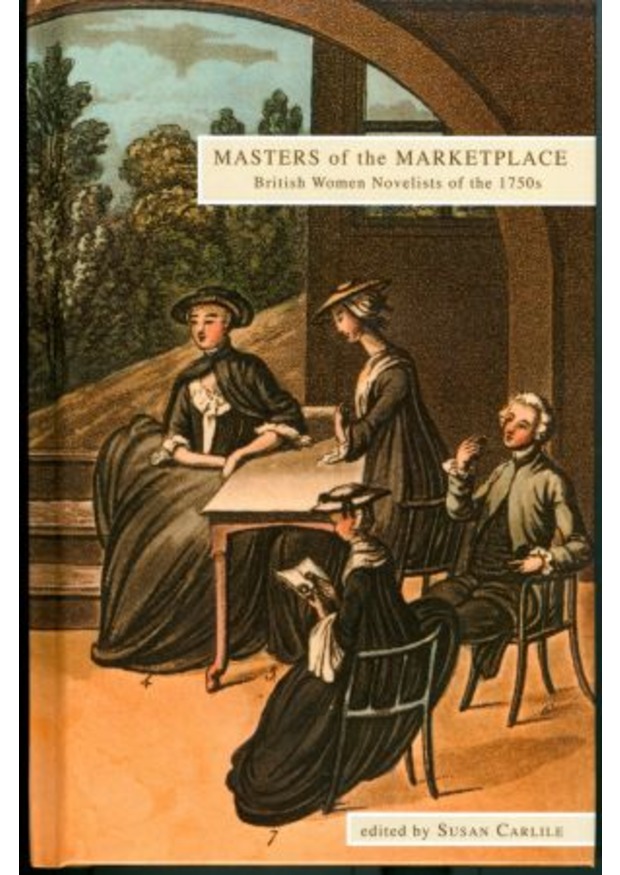British Women Novelists of the 1750s
Discussions about the development of the novel often jump directly from the 1740s, when Richardson and Fielding were particularly successful, to the 1770's, when women supposedly entered the marketplace in greater numbers.The little scholarship that focuses on the British novel in the 1750s has primarily addressed male output and concluded that the genre was faltering and in danger of extinction.
Masters of the Marketplace is the first volume specifically to assess the importance of the 1750s in literary history and to argue that women novelists engaged in critical renovation of the novel as a genre and reclaimed it as a proto-feminist project. This book highlights how these women controlled their literary circumstances, mining their prospects and nimbly responding to the changing literary marketplace, the emergent domestic ideals, varied reader responses, shifting notions of genre, and new developments in epistemology. Their texts spoke in more pointed ways to societal inadequacies, and their use of amatory and sentimental fiction, two categories often ridiculed, in fact produced transgressive results. Thus they were masters of, rather than mistresses to, a rapidly changing publishing world.
Indeed, in the 1750s women and men's novel output was nearly equal. The most prolific women authors of this decade, Sarah Fielding, Charlotte Lennox, and Sarah Scott, were among the ten top producers of new fiction. Thus, women novelists had arrived at a crucial intersection in literary history when their interest in fostering public personae merged with a more amenable marketplace. This collection of essays shows how women took advantage of the brief window of opportunity and made an essential contribution to literary history.
List of Contributors
Eve Taylor Bannet; Jennie Batchelor; Katharine Beutner; Karen Cajka; Susan Carlile; Emily C. Friedman; Patricia L. Hamilton; Aleksondra Hultquist; Kathryn R. King; Marta Kvande; Kathleen M. Oliver; and Betty A. Schellenberg.













